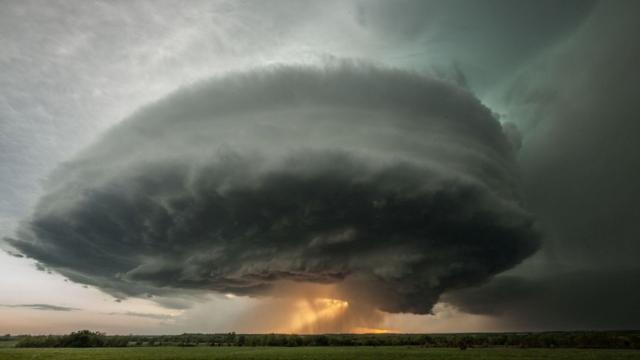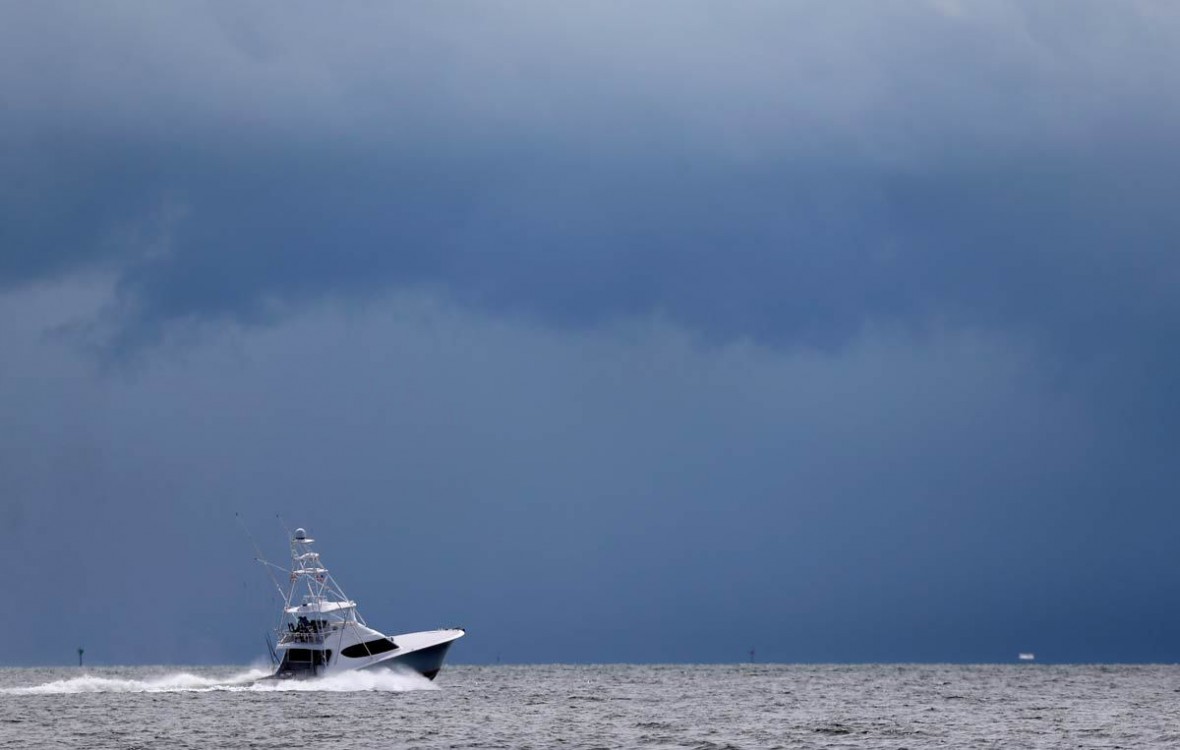
I’ve been a mountaineer for most of my life. Mountains are in my blood. In my early 20s, while climbing in France, I fell in a crevasse on the Milieu Glacier, at the start of the normal route on the Aiguille d’Argentière. Remarkably, I was unhurt. From the grip of the banded ice, I saw a thin slit of blue sky 120 feet above me. The math was simple: Climb 120 feet. If I reached that slit of blue sky, I would live. If I didn’t, I’d freeze to death in the cold and dark.
Now, over 40 years later, it feels like I’m back in a different kind of darkness — the darkness of the Trump administration’s scientific ignorance. This is just as real as the darkness of the Milieu Glacier’s interior, and just as life-threatening. This time, I’m not alone. The consequences of this ignorance affect every person on the planet.
Imagine, if you will, that you spend your entire professional life trying to do one thing to the best of your ability. In my case, that one thing is to study the nature and causes of climate change. You put in a long apprenticeship. You spend years learning about the climate system, computer models of climate and climate observations. You start filling a tool kit with the statistical and mathematical methods you’ll need for analyzing complex data sets. You are taught how electrical engineers detect signals embedded in noisy data. You apply those engineering insights to the detection of a human-caused warming signal buried in the natural “noise” of Earth’s climate. Eventually, you learn that human activities are warming Earth’s surface, and you publish this finding in peer-reviewed literature.
You participate in rigorous national and international assessments of climate science. You try to put aside all personal filters, to be objective, to accommodate a diversity of scientific opinions held by your peers, by industry stakeholders and by governments. These assessments are like nothing you’ve ever done before: They are peer review on steroids, eating up years of your life.
The bottom-line finding of the assessments is cautious at first. In 1995, the conclusion is this: “The balance of evidence suggests a discernible human influence on global climate.” These 12 words are part of a chapter on which you are first author. The 12 words change your life. You spend years defending the “discernible human influence” conclusion. You encounter valid scientific criticism. You also encounter nonscientific criticism from powerful forces of unreason, who harbor no personal animus toward you, but don’t like what you’ve learned and published — it’s bad for their business.
You go back to the drawing board. You address the criticism that if there really is a human-caused signal, we should see it in many attributes of the climate system — not just in surface thermometer records. You look at temperature from the top of the atmosphere to the depths of the oceans. You examine water vapor and the height of the lowest layer of the atmosphere. Your colleagues search for human fingerprints in rainfall, clouds, sea level, river runoff, snow and ice extent, atmospheric circulation patterns and the behavior of extreme events. You find human-caused climate fingerprints everywhere you look.
Your peers are your fiercest critics. They are constantly kicking the tires. Show us that your “discernible human influence” results aren’t due to changes in the Sun, or volcanic activity, or internal cycles in the climate system. Show us that your results aren’t due to some combination of these natural factors. Convince us that detection of a human fingerprint isn’t sensitive to uncertainties in models, data or the statistical methods in your tool kit. Explain the causes of each and every wiggle in temperature records. Respond to every claim contradicting your findings.
So you jump through hoops. You do due diligence. You go down every blind alley, every rabbit hole. Over time, the evidence for a discernible human influence on global climate becomes overwhelming. The evidence is internally and physically consistent. It’s in climate measurements made from the ground, from weather balloons, and from space — measurements of dozens of different climate variables made by hundreds of different research groups around the world. You write more papers, examine more uncertainties, and participate in more scientific assessments. You tell others what you’ve done, what you’ve learned, and what the climatic “shape of things to come” might look like if we do nothing to reduce emissions of heat-trapping greenhouse gases. You speak not only to your scientific peers, but also a wide variety of audiences, some of whom are skeptical about you and everything you do. You enter the public arena, and make yourself accountable.
After decades of seeking to advance scientific understanding, reality suddenly shifts, and you are back in the cold darkness of ignorance. The ignorance starts with President Trump. It starts with untruths and alternative facts. The untruth that climate change is a “hoax” engineered by the Chinese. The alternative fact that “nobody really knows” the causes of climate change. These untruths and alternative facts are repeated again and again. They serve as talking points for other members of the administration. From the Environment Protection Agency administrator, who has spent his career fighting against climate change science, we learn the alternative fact that satellite data show “leveling off of warming” over the past two decades. The energy secretary tells us the fairy tale that climate change is due to “ocean waters, and this environment in which we live.” Ignorance trickles down from the president to members of his administration, eventually filtering into the public’s consciousness.
Getting out of this metaphorical darkness is going to be tough. The administration is powerful. It has access to media megaphones and to bully pulpits. It can abrogate international climate agreements. It can weaken national legislation designed to protect our air and water. It can challenge climate science and can tell us that more than three decades of scientific understanding and rigorous assessments are all worthless. It can question the integrity and motives of climate scientists. It can halt satellite missions and impair our ability to monitor Earth’s climate from space. It can shut down websites hosting real facts on the science of climate change. It can deny, delay, defund, distort, dismantle. It can fiddle while the planet burns.
I have to believe that even in this darkness, though, there is still a thin slit of blue sky. My optimism comes from a gut-level belief in the decency and intelligence of the people of this country. Most Americans have an investment in the future — in our children and grandchildren, and in the planet that is our only home. Most Americans care about these investments in the future; we want to protect them from harm. That is our prime directive. Most of us understand that to fulfill this directive, we can’t ignore the reality of a warming planet, rising seas, retreating snow and ice, and changes in the severity and frequency of droughts and floods. We can’t ignore the reality that human actions are part of the climate-change problem, and that human actions must be part of the solution to this problem. Ignoring reality is not a viable survival strategy.
Trump has referred to a dark cloud hanging over his administration. The primary cloud I see is the self-created cloud of willful ignorance on the science of climate change. That cloud is a clear and present threat to the lives, livelihoods and health of every person on the planet, now and in the future. This cloud could be easily lifted by the president himself.
But for my own part, I don’t intend to spend the rest of my life in darkness or silently accepting trickle-down ignorance. I didn’t climb out of a crevasse on the Milieu Glacier for that.
3 WAYS TO SHOW YOUR SUPPORT
- Log in to post comments














